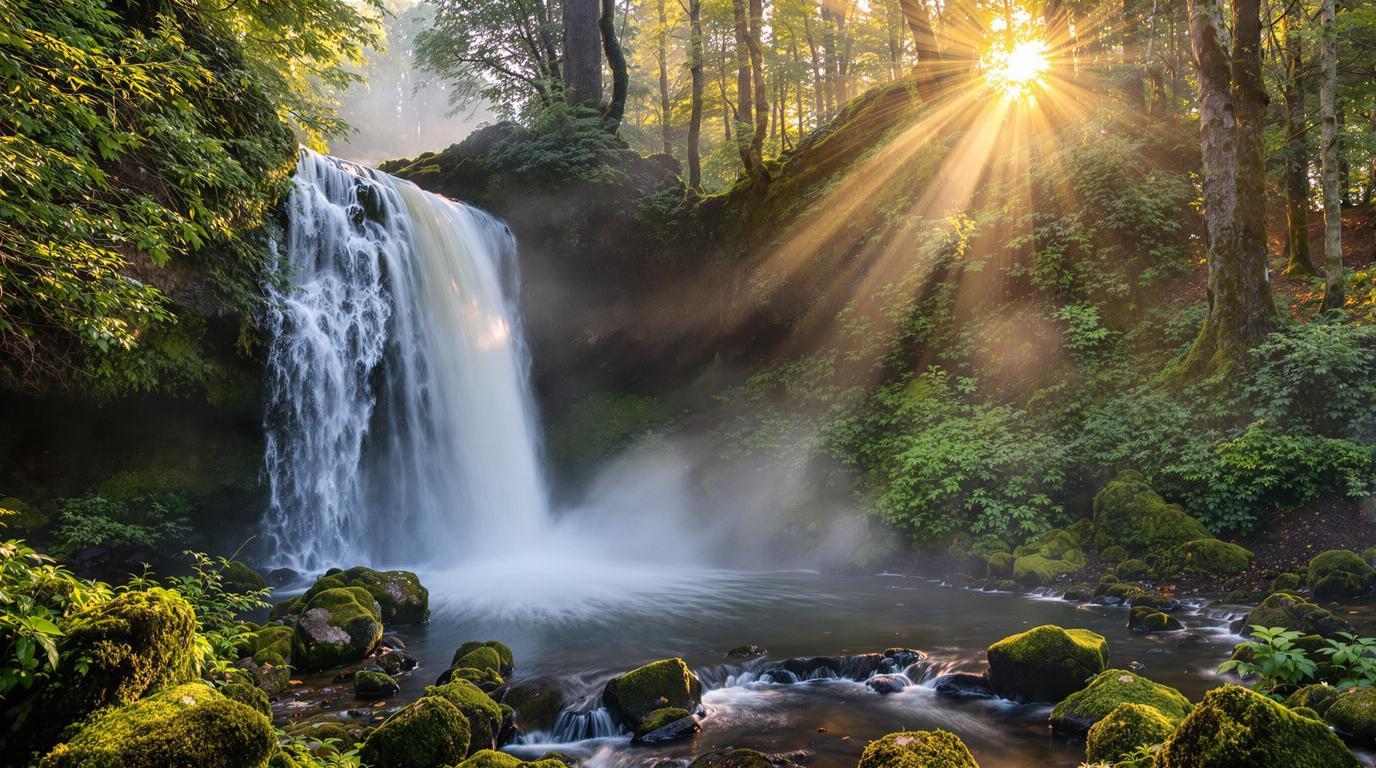The mist hung like a whisper between ancient beech trees as I rounded the final bend in the trail. Suddenly, there it was — a 30-meter cascade tumbling dramatically over volcanic rock, the water catching morning light in a hypnotic dance. Cascade du Queureuilh isn’t just another pretty waterfall. Hidden in France’s volcanic heart, it’s the rare natural wonder that hasn’t been Instagram-famous into oblivion.
Where volcanic forces meet misty forest magic
Tucked away in France’s Puy-de-Dôme region, Queureuilh exists at the fascinating intersection of geological drama and sylvan serenity. The waterfall’s volcanic foundations date back millions of years when the Massif Central rumbled with fiery activity, creating the dramatic topography that now channels snowmelt from the Plateau de Balayé.
“Our waterfall changes personality with the seasons,” explains Marie Dubois, whose family has operated a nearby guesthouse for generations. “In spring, it roars with snowmelt. By autumn, it whispers secrets to those patient enough to listen.”
What distinguishes Queureuilh from more trafficked natural attractions is the remarkable journey to reach it — a 10-minute forest trail that feels like entering another realm, similar to the spectacular experience found in France’s limestone canyons but with its own distinct volcanic character.
Three hidden treasures beyond the main cascade
The forgotten forest path to triple falls
While most visitors turn back after photographing Queureuilh, the real magic lies a half-kilometer further along an unmarked path. Here, three smaller cascades tumble in succession through a moss-covered ravine that few guidebooks mention. I discovered them purely by accident, following the sound of water rather than any trail markers.
The path requires moderate fitness and proper footwear, but rewards with absolute solitude and photographs that capture a France most travelers never see. The experience rivals discoveries you might make near this alpine lake with hidden ridge trails, though at a more accessible elevation.
Domaine de la Louve Blanche’s misty viewpoint
A 20-minute detour from the main trail leads to an abandoned shepherd’s hut locals call Domaine de la Louve Blanche. The stone structure itself isn’t remarkable, but the clearing beside it offers the region’s most spectacular sunrise view — when conditions are right, morning mist creates a phenomenon locals call “the wolf’s breath” rolling through the valley below.
Savoring volcanic terroir beyond tourist menus
In nearby Mont-Dore, skip the tourist restaurants and seek out Auberge du Plateau, a farmhouse restaurant where Madame Fournier serves a truffade that will haunt your culinary dreams. The dish combines potatoes slow-cooked in duck fat with melted Salers cheese — a semi-hard variety produced from cows grazing on volcanic soils.
For picnic supplies, the Thursday market offers regional cheeses, rustic bread, and charcuterie. My favorite combination: aged Salers with wild blueberry preserves, enjoyed beside the lower cascade where flat volcanic rocks form natural picnic tables.
Essential knowledge for the discerning explorer
Timing your encounter with water and light
Visit between April and June for maximum water flow. Photographers should arrive before 10 AM when sunlight penetrates the canopy at the perfect angle. October brings spectacular foliage but reduced water volume. Winter transforms the falls into crystalline ice sculptures, though access becomes treacherous without proper equipment.
Lodging that enhances the experience
Skip chain hotels for Gîte des Trois Cascades, a renovated farmhouse where hosts Philippe and Claire serve breakfast featuring honey from their own hives. Budget travelers can opt for Camping Municipal Mont-Dore, while those seeking luxury should consider La Grande Cascade, where rooms offer balcony views of the distant falls.
From Mont-Dore, consider extending your journey to Rocamadour’s clifftop medieval village for a complete immersion in central France’s most dramatic landscapes.
Reflections from the edge of falling water
As I perched on volcanic stone, watching water plunge endlessly into crystal pools below, I understood why locals guard Queureuilh’s secrets. Some places deserve to remain slightly hidden, protected from the trampling of mass tourism. The cascade exists as a perfect metaphor for slow travel — powerful yet peaceful, accessible yet untamed, a reward reserved for those willing to venture beyond the obvious.
